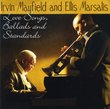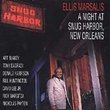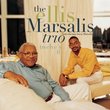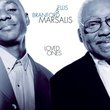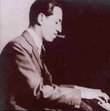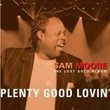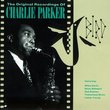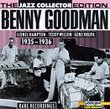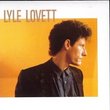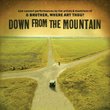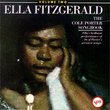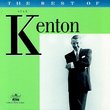| All Artists: Ellis Marsalis Title: Duke in Blue Members Wishing: 0 Total Copies: 0 Label: Sony Original Release Date: 11/2/1999 Release Date: 11/2/1999 Genres: Jazz, Pop Styles: Modern Postbebop, Bebop Number of Discs: 1 SwapaCD Credits: 1 UPC: 074646363126 |
Search - Ellis Marsalis :: Duke in Blue
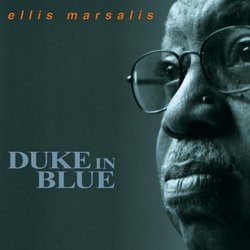 | Ellis Marsalis Duke in Blue Genres: Jazz, Pop
Despite his prodigious talents on piano, Ellis Marsalis has been largely content to remain in his hometown of New Orleans, raising sons who would go on to win wide acclaim in the jazz world. And with albums like Duke in Bl... more » |
Larger Image |
CD DetailsSynopsis
Amazon.com Despite his prodigious talents on piano, Ellis Marsalis has been largely content to remain in his hometown of New Orleans, raising sons who would go on to win wide acclaim in the jazz world. And with albums like Duke in Blue to his credit, Marsalis ought to be content, as this is easily among the most fulfilling nods to Ellington in his centennial year. The playing is neither reserved nor sporty, relying on color and a slowed pace to demonstrate how well Ellington built his works from behind the keyboard. "Come Sunday" gets the most sublime reading, and "The Mooche" gets the broadest, brightest jump, opening the session. In between, there's "Squatty Roo" with its finger-jumping complexity and "Reflections in D" to quietly indulge a melancholic strain that runs throughout Duke in Blue. Maybe Marsalis's vision of Ellington is suffused with the blues, not just their structure but their philosophic, on-the-run underpinnings. After all, Marsalis chose to remain somewhat local in the Crescent City, deepening his family's legacy for sure. And Ellington? Well, he barely came off the road for home leave in all his decades of touring. In any event, Marsalis sounds experienced and wise throughout his Ellingtonian forays, ever comfortable and carefully creative. --Andrew Bartlett Similar CDs
Similarly Requested CDs
|
CD ReviewsGREAT 11/27/1999 (5 out of 5 stars) "I RECENTLY SAW "E" PLAY A MOSTLY SOLO SET AT SNUG HARBOR IN NEW ORLEANS. A LOT OF THESE SONGS WERE IN THAT SET, AND IT IS GOOD TO HAVE A RECORDING OF THEM. EVEN WHEN DUKE WAS ALIVE, SOLO PIANO PERFORMANCES BY HIM WERE RARE. "E" IS ONE OF FEW MUSICIANS WHO CAN GIVE US THIS TYPE OF REPRESENTATION OF DUKE'S MUSIC. WE ARE VERY LUCKY TO HAVE THIS IMMENSE TALENT AVAILABLE. I HOPE YOU GET ACHANCE TO ENJOY THIS DISK." Blue skies perryink2 | castle rock | 08/29/2003 (3 out of 5 stars) "Last year, a select few jazz musicians and vocalists celebrated the centennial of the Edward Kennedy `Duke' Ellington's birth with their own interpretations of the composer and pianist's catalogue. This one, courtesy of the Marsalis family patriarch, is one of the best. Marsalis (who admits he once thought of Ellington as a senior citizen back when he himself was a Bebop absorbed teenager enamored of so-called `hip' jazz players like Charlie Parker and Thelonius Monk) goes it alone on the ivories for this collection of decidely alternative choices from Duke's repetoire. That the flavour of New Orleans courses through the song selection on Duke In Blue is hardly surprising considering Marsalis' roots in that city. But he avoids the trap of being staid and overly faithful of Duke's sheet music; sprinkling just the right amount of spice on the uptempo tracks, including a steaming broil of The Mooche, an exceptionally zesty slice of improvisation (Caravan) and a finger-sizzling rendition of Squatty Roo. The ballads (Prelude To A Kiss, Sophisticated Lady, Mood Indigo) are spared radical reinvention but they do provide Marsalis the chance to showcase the soft and delicately expressive side of his piano playing. While the up and down mood and sparse instrumentation of Duke In Blue might throw some people off, Marsalis' tribute is an unpretentious and distinctive as it gets." The correct track listing of this fine CD M. van den Assem | The Netherlands | 04/13/2008 (4 out of 5 stars) "Ellis Marsalis : Duke in Blue
1. The Mooche 2. Prelude To A Kiss 3. Squatty Roo 4. Sophisticated Lady 5. Just Squeeze Me (But Don't Tease Me) 6. Mood Indigo 7. Caravan 8. Come Sunday 9. Creole Love Call 10. Reflections In D 11. Drop Me Off In Harlem 12. Melancholia 13. Medley: I'm Beginning To See The Light - Do Nothin' Till You Hear From Me - In A Mellow Tone 14. Duke In Blue Only the sound samples of 1-11 are given here (with the correct sound) but wrongly labelled with compositions by Thelonious Monk. " |

 Track Listings (11) - Disc #1
Track Listings (11) - Disc #1